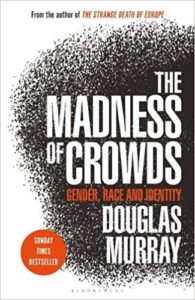A Look Back:
The Power of Wit

On Tuesday, I shared an excerpt from an essay I wrote in 2008 about the state of America – an essay that is still disturbingly relevant. Today, I’m switching gears with a piece that I was happy to read again, because it is about a way of moving through life with less stress and more success. It’s not something I was ever very good at. And I can’t say that I’ve gotten better in the last 13 years. But it’s nonetheless good advice.
As W. Somerset Maugham once said, “I can imagine no more comfortable frame of mind for the conduct of life than a humorous resignation.”
Written for Early to Rise, April 12, 2010
My friend B is a very affable guy. He always seems happy to see you. He asks about your family, work, and friends. He is happy to talk about his life, too, if you ask him. And when he does, it is always positive and amusing.
This combination of congeniality and wit is used to make quick connections with customers, employees, and colleagues. The unsaid theme of his humor is that the business you are doing with him is not all that serious. Let’s make a deal, he seems to be saying, but let’s make it fun.
If you tell B that you think the price of a particular item is high, he won’t argue the point. He’ll make a joke of it. “For someone with your money,” he might say, “it is chicken feed!” If you ask him if he can deliver it on Friday, he’ll say, “Friday of what month?”
In doing business with B, you can never forget that fighting or fretting about most things simply doesn’t make sense. There are more important things to worry about.
But he doesn’t shy away from difficult discussions. He seeks them out. He seems to know that he has the power to straighten out problems quickly using his finely tuned sense of humor.
He does what George Bernard Shaw said he always tried to do: “Take the utmost trouble to find the right thing to say, and then say it with the upmost levity.”
This is very powerful, when you think about. Usually, when confronted with a difficult or awkward situation, we feel the prudent thing is to say nothing. But saying nothing conveys nothing. The fraud is not unmasked. The foolishness is not sanctioned. The reprobate is not reproached.
To some, humor is synonymous with joking or punning. But nothing could be further from the truth.
Humor – true humor – requires intelligence and draws from an appreciation for the absurdity of life.
Humor is funny. Joking is, at best, amusing. And punning? Spare me.
A joke is a remark or anecdote that is memorized and retold for the amusement of others. To be a jokester, you need only have enough memory to recount something you heard.
A pun is a very obvious play on words. It requires no wit. In fact, it suggests the lack of it. A punster’s only attribute is a remarkable lack of embarrassment. A punster is willing to verbalize inanities that others have the sense to keep to themselves.
By contrast, a witty person shows himself to be smart and positive, but also someone who understands the pathos of life. As Mark Twain said, “the secret source of humor is not joy but sorrow.”
Humorless people inevitably become upset when they encounter obstacles or setbacks. They are like wagons without springs, as Henry Ward Beecher said, “jolted by every pebble in the road.”
But if you have wit in your head and lightness in your heart you can say the correct thing to anyone at any time and get away with it. With humor, you can deal with disappointments and surprises with equanimity and even optimism.
 MarkFord
MarkFord










